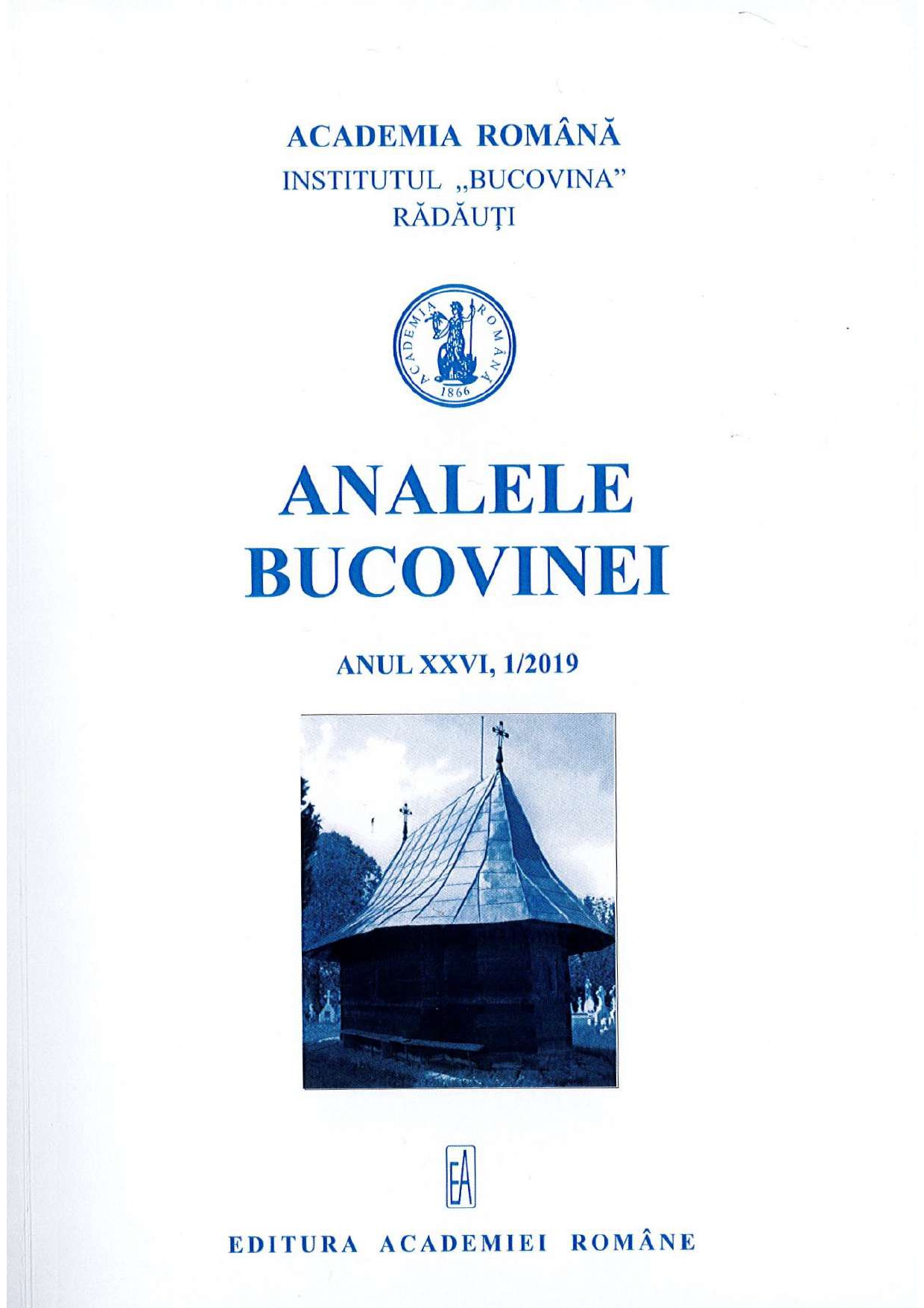SUBLIMUL UNIRII BUCOVINEI CU ȚARA
The Sublime of Bukovina's Union with the Fatherland
Author(s): IOAN-AUREL POPSubject(s): Pre-WW I & WW I (1900 -1919)
Published by: Editura Academiei Române
Keywords: Bukovina; Declaration of Union; Kingdom of Romania;
Summary/Abstract: The most impressive fundamental document of the Great Union is, in our opinion, the Declaration of Bukovina's Unification with Romania on November 15/28, 1918. This document was read and approved in the General Assembly of Bukovina, gathered in the fifth meeting of the Romanian National Council of Bukovina. This declaration was read by Iancu Flondor, the president of the General Congress of Bukovina, and was received by the congressional plenary with extended applause. The unification vote was unanimously consented by those present. We consider that the Declaration from November 1918 expresses the dramatic history of the people of Bukovina, who since 1775 have no longer been a part of their country of origin and had to endure attacks on Romanian nationality, sustained and organized by government authorities. If living among strangers, in a too optimistically trumpeted superior civilization of Vienna would have been as promised, then the people (including the Romanians) would not have found a way and a reason to escape from the alleged benefits of this “Eden” on earth. But the Bukovinian Romanians felt awful in 1918 and wanted to relinquish the solidarity with the rest of the Romanians. They are the only ones of the alienated Romanians who do not lay down conditions of any kind, which do not require anything of the great country, they are confident, ready for any sacrifice for the nation’s welfare. Bukovina 's declaration of union with Romania is – according to our personal emotional judgment – a written version of the Ballad of Ciprian Porumbescu and his operetta entitled „Crai Nou” (New Moon). All the suffering of entire generations of obedient Romanian refugees, sublimated in their elegiac folk-song known as the doina, is poured out in this text elaborated in Chernivtsi. It is about a quenched grievance, though fulfilled with the pure hope in the bright future of the nation, a hope foretold by the new, crescent moon.
Journal: ANALELE BUCOVINEI
- Issue Year: 52/2019
- Issue No: 1
- Page Range: 5-12
- Page Count: 8
- Language: Romanian

